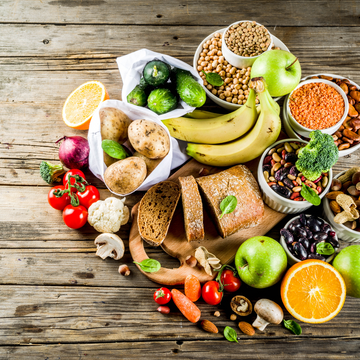
Introduction to Sugar Addiction:
A topic that is hotly debated is whether Sugar Addiction is real or not? While sugar doesn't meet the criteria for addiction outlined for substances like drugs, some studies suggest that excessive sugar consumption can lead to changes in the brain, similar to those seen with addictive substances.
Research has shown that consuming sugar activates the brain's reward system, releasing dopamine—a neurotransmitter associated with pleasure. Over time, this repeated stimulation can lead to a tolerance, requiring higher amounts of sugar to achieve the same level of satisfaction. Additionally, abrupt cessation of sugar intake may result in withdrawal-like symptoms, further complicating the relationship between sugar and the brain. Most drugs work similarly and this is how a pattern of addiction emerges.
Identifying a Sugar Addiction:
Intense Cravings: Those with a sugar addiction often experience intense cravings for sweet foods that may be hard to resist.
Overeating of Sugary Foods: An individual with a sugar addiction may continue to consume sugary foods even when aware of the negative consequences on their health. This could include weight gain, dental issues, diabetes etc.
Emotional Dependence: Sugary foods may be used as a coping mechanism for stress, boredom, or other emotions, creating a cycle of emotional dependence.
Withdrawal Symptoms: Abruptly reducing or eliminating sugar intake can lead to withdrawal-like symptoms in those with a sugar addiction. These symptoms may include irritability, headaches, mood swings, fatigue, and intense cravings.
Neglecting Nutrient-Rich Foods: A focus on sugary foods at the expense of nutrient-rich options is indicative of a sugar addiction. This may result in a diet lacking essential vitamins and minerals, contributing to overall health concerns.
What to Do in Case of Sugar Addiction:
Gradual Reduction: Abruptly cutting out all sources of sugar can be challenging and may lead to withdrawal symptoms. Gradually reducing sugar intake allows the body and taste buds to adjust more comfortably.
Mindful Eating: Practicing mindfulness while eating involves paying attention to the flavors, textures, and satisfaction derived from food. This can help break the cycle of mindless sugar consumption.
Balanced Diet: Ensuring a well-balanced diet that includes a variety of nutrients can help address nutritional deficiencies that may contribute to sugar cravings.
Seeking Support: If sugar consumption is causing distress, seeking support from a healthcare professional or a registered dietitian can provide personalized guidance and strategies.




